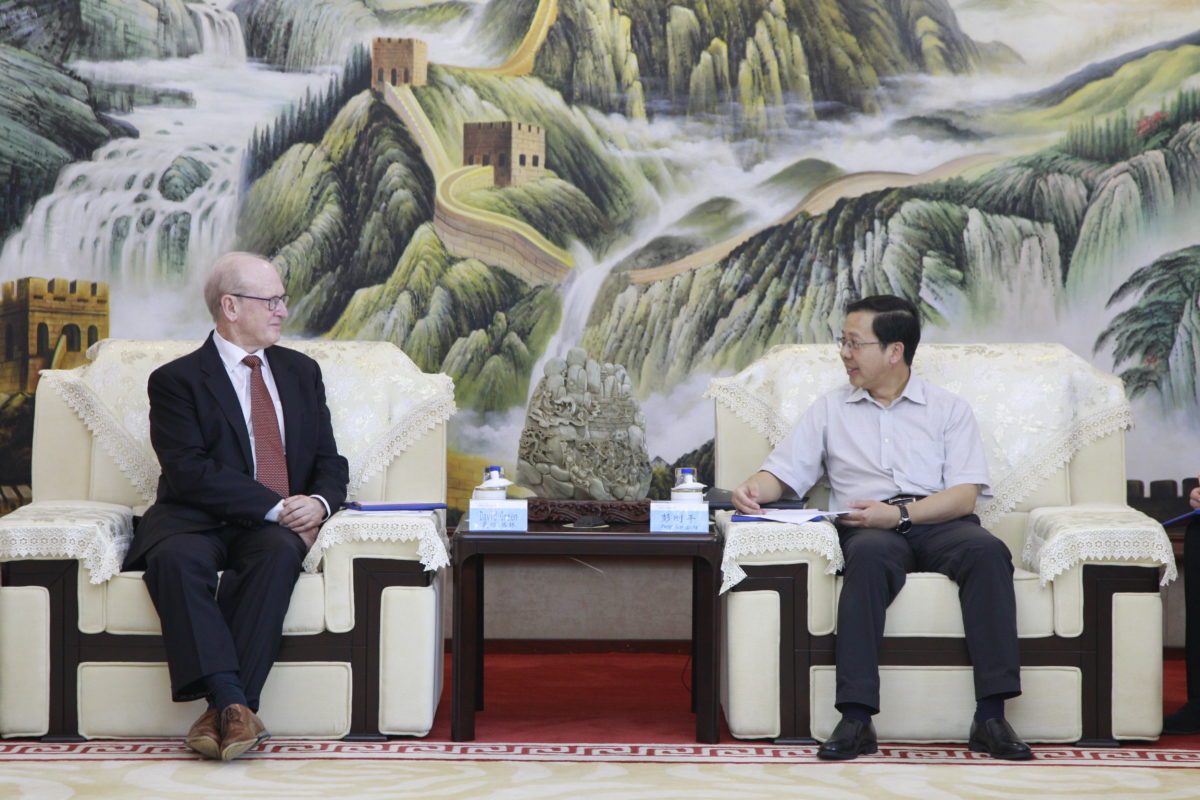The Brisbane-based utility-scale solar and storage developer has today announced an agreement with China’s second-largest power generation company, China Huadian Corporation. The duo is set to co-develop and invest in renewable power generation with integrated battery energy storage systems in China, Australia and elsewhere in Asia.
The Sino-Australian joint venture is boosted by Japanese energy provider Jera, a company with whom both China Huadian and Lyon Group signed separate agreements with back in 2018. The latter deal is seeing to the construction of the Cape York Battery Power Plant.
The agreement between Lyon and China Huadian reaffirms and emboldens the two companies’ focus on overcoming the obstacles solar and wind energy face on their way to energy primacy.
In general, the new agreement looks to focus the two companies on battery-based energy storage system (BESS) opportunities across the board. Specifically, the two companies are looking at BESS retrofit opportunities in China and two other as yet unspecified Asian countries.
China Huadian has also agreed to co-develop, purchase, finance and construct Lyon’s advanced integrated solar battery power stations in Australia via its subsidiary Chian Huadian Engineering Co., a leading renewable EPC company.
The new agreement also covers the integration of long-duration BESS into new and existing Chian Huadian projects throughout China and the rest of Asia. The Asian energy giant seeks to utilise BESS to overcome the unstable power output of renewables, avoid curtailment, increase the efficiency of existing projects and lead to the development and acquisition of new and existing renewable energy generation projects.
Both China Huadian and Jera see Lyon Group as a great assistant in overcoming the impediments to utility-scale renewable energy generation. China Huadian and Jera’s generation portfolio’s number at approximately 150 GW and 74 GW respectively, making this another great step forward for Lyon Group into the wider Asian market. As Lyon Chair David Green said, the world’s biggest utilities are waking up to the imperative of marking solar and wind energy viable. “Major global utilities like China Huadian and Jera, and the others who have approached Lyon for assistance, are very focussed on addressing the very real limitations of traditional renewables,” said Green.
Green went on to stress the importance of the shift of major global utilities away from the inflexible traditional solar and wind generation “that is destabilising and often wasted”.
Like Australia, except by economies of scale almost incomparably larger, China is readily aware that renewable energy integration is by no means an unobstructed yellow brick road. For renewable energy generators in both countries the word “curtailment” is said with increasing bitterness. If leading generators like Jera and China Huadian aren’t able to find solutions such as those which Lyon Group can provide, namely, flexible and dispatchable power stations, the value of avoided curtailment will measure in the billions of Renminbi (RMB).
“China Huadian has big plans for solar and wind development,” continued Green, “but the significant curtailment and grid disturbance they have experienced to date shows that the volume of renewables they want to build will deliver great benefit, both technically and commercially, with integrated storage.”
Green insists life without BESS is hardly an improvement since traditional standalone solar and wind projects without distributed storage are destabilising, wasteful and generally less flexible than the thermal generation they’re replacing.
“Solving the inflexibility, instability and curtailment of solar and wind is key to lifting and eventually removing the physics, economics and political ceilings on zero emissions power,” concluded Green, “it’s the big global utilities that understand these challenges and are focussed on overcoming them.”
This content is protected by copyright and may not be reused. If you want to cooperate with us and would like to reuse some of our content, please contact: editors@pv-magazine.com.









By submitting this form you agree to pv magazine using your data for the purposes of publishing your comment.
Your personal data will only be disclosed or otherwise transmitted to third parties for the purposes of spam filtering or if this is necessary for technical maintenance of the website. Any other transfer to third parties will not take place unless this is justified on the basis of applicable data protection regulations or if pv magazine is legally obliged to do so.
You may revoke this consent at any time with effect for the future, in which case your personal data will be deleted immediately. Otherwise, your data will be deleted if pv magazine has processed your request or the purpose of data storage is fulfilled.
Further information on data privacy can be found in our Data Protection Policy.